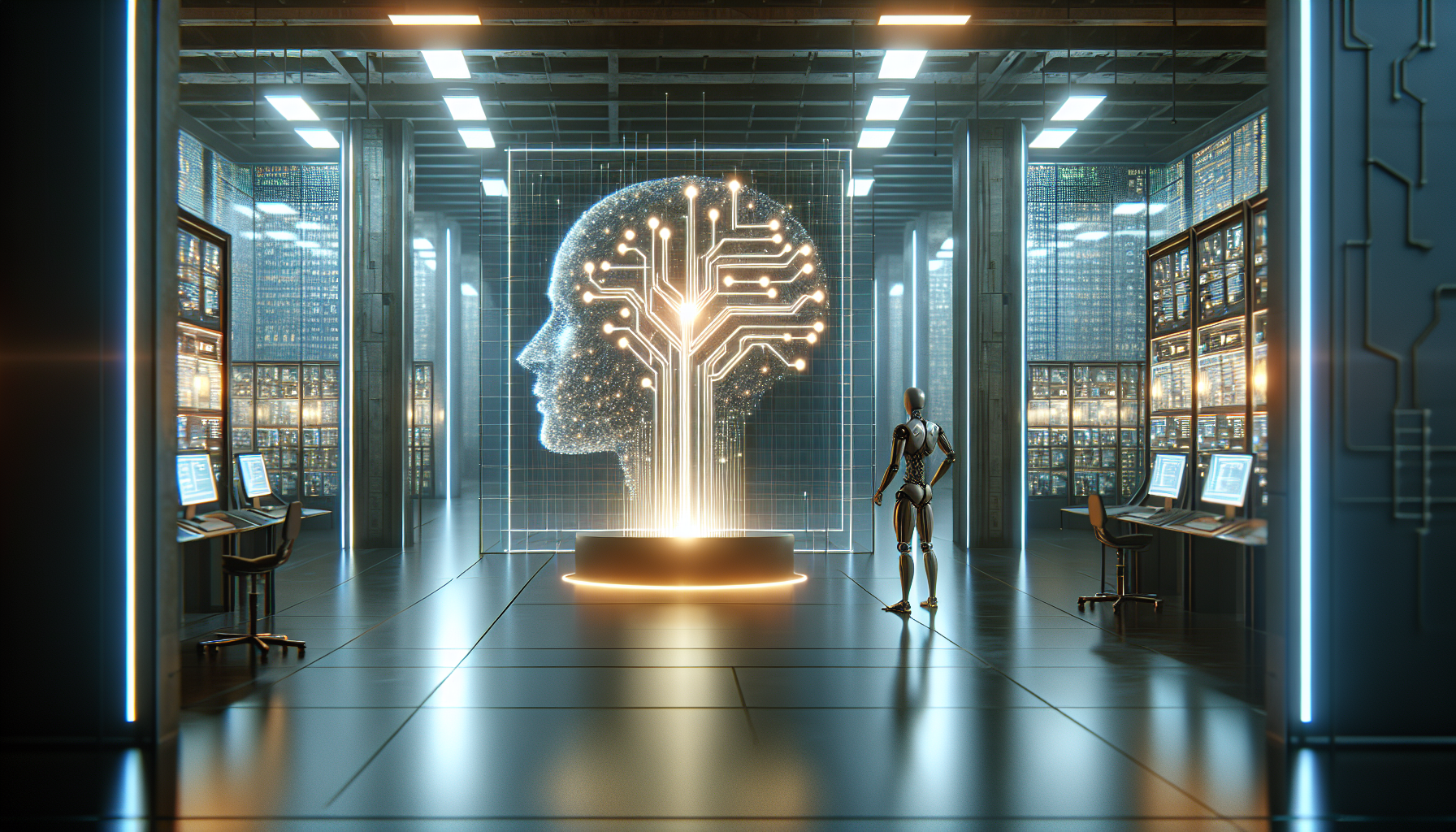
The Future of AI in Military and Defense: Charting a New Course for Global Security
March 27, 2025
Artificial Intelligence is not just reshaping civilian life; it is also revolutionizing military strategies and defense systems worldwide. This transformative wave is setting the stage for a future where AI stands as a cornerstone of national security. As we explore the burgeoning role of AI in military and defense applications, we uncover a narrative brimming with both promise and responsibility.
Imagine a battlefield where decision-making is enhanced by AI-driven insights, where autonomous systems provide unprecedented support to human forces, and where the fog of war is cleared by precise, data-driven strategies. AI's potential to transform warfare is vast, offering capabilities that were once the realm of science fiction. From predictive analytics that can forecast potential threats to autonomous drones that can carry out reconnaissance missions with minimal human oversight, AI is expanding the horizons of military capability.
One of the most striking aspects of AI in defense is its capacity for real-time data analysis. Military operations generate vast amounts of data that need to be processed quickly and accurately. AI systems can analyze this data to identify patterns and trends that might elude human analysts. This capability not only enhances situational awareness but can also provide critical insights that inform strategic decisions.
In the realm of cybersecurity, AI is proving to be a formidable ally. Cyber threats are becoming increasingly sophisticated, with adversaries using AI to launch more complex attacks. To counter these threats, defense organizations are deploying AI-driven security systems that can detect and respond to breaches faster than traditional methods. These systems can learn from each attack, continuously improving their ability to protect sensitive data and infrastructure.
Autonomous vehicles and drones are another exciting development in military applications of AI. These technologies can operate in environments that are too dangerous for humans, conducting surveillance, logistics, and even combat missions. The use of AI in these vehicles allows for greater precision and efficiency, reducing the risk to human soldiers while enhancing mission effectiveness.
However, the integration of AI into military operations comes with ethical and strategic considerations. The prospect of autonomous weapons systems raises questions about accountability and the potential for unintended escalation. As AI systems become more autonomous, ensuring that they align with international laws and ethical standards is paramount. The development of AI in military contexts must be guided by principles that prioritize human oversight and accountability.
Furthermore, AI's role in military strategy could redefine international relations. Nations are now investing heavily in AI research and development, seeking to gain a technological edge. This race for AI supremacy in defense could shift global power dynamics, necessitating new forms of diplomacy and cooperation. International agreements on AI use in military contexts might become as crucial as nuclear non-proliferation treaties.
Despite these challenges, the potential of AI to enhance global security is immense. Imagine a world where AI-driven peacekeeping missions prevent conflicts before they escalate, where humanitarian efforts are bolstered by AI's logistical capabilities, and where collaborative AI platforms facilitate international cooperation. Such visions are not mere fantasies but achievable goals that require thoughtful implementation and collaboration across borders.
As we look to the future, the question of AI in military and defense is not just about technology but about how we choose to wield it. Will AI be a force for peace, enhancing our ability to prevent conflict and protect lives? Or will it drive a new arms race, increasing the risks of confrontation? The answers to these questions depend on the choices we make today—choices that will shape the security landscape for generations to come.
In pondering the trajectory of AI in military and defense applications, we are reminded of the profound impact technology can have on human endeavors. How can we harness AI to create a safer, more secure world? What steps must we take to ensure that the integration of AI into defense serves the interests of all humanity? These are the questions that beckon us to think deeply about the future we are creating, inviting a dialogue that transcends borders and unites us in a common pursuit of peace.


